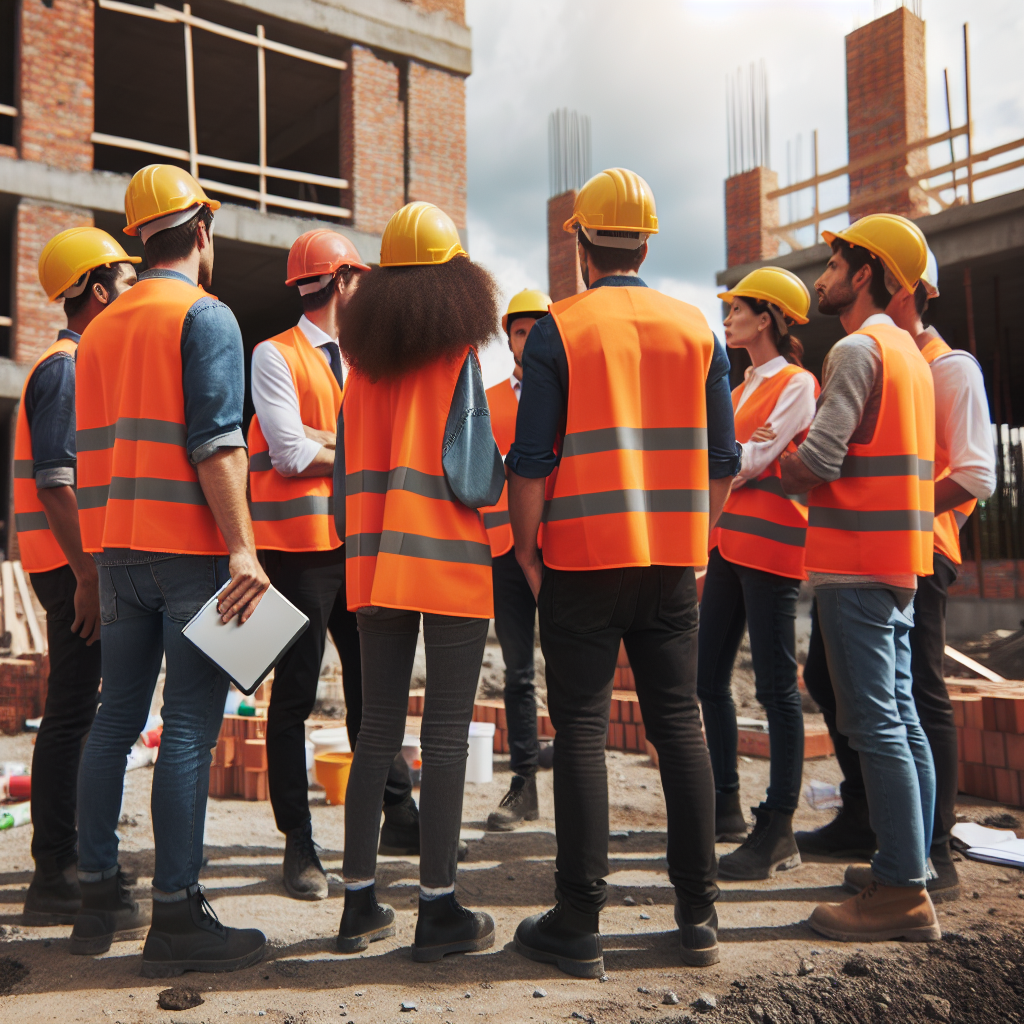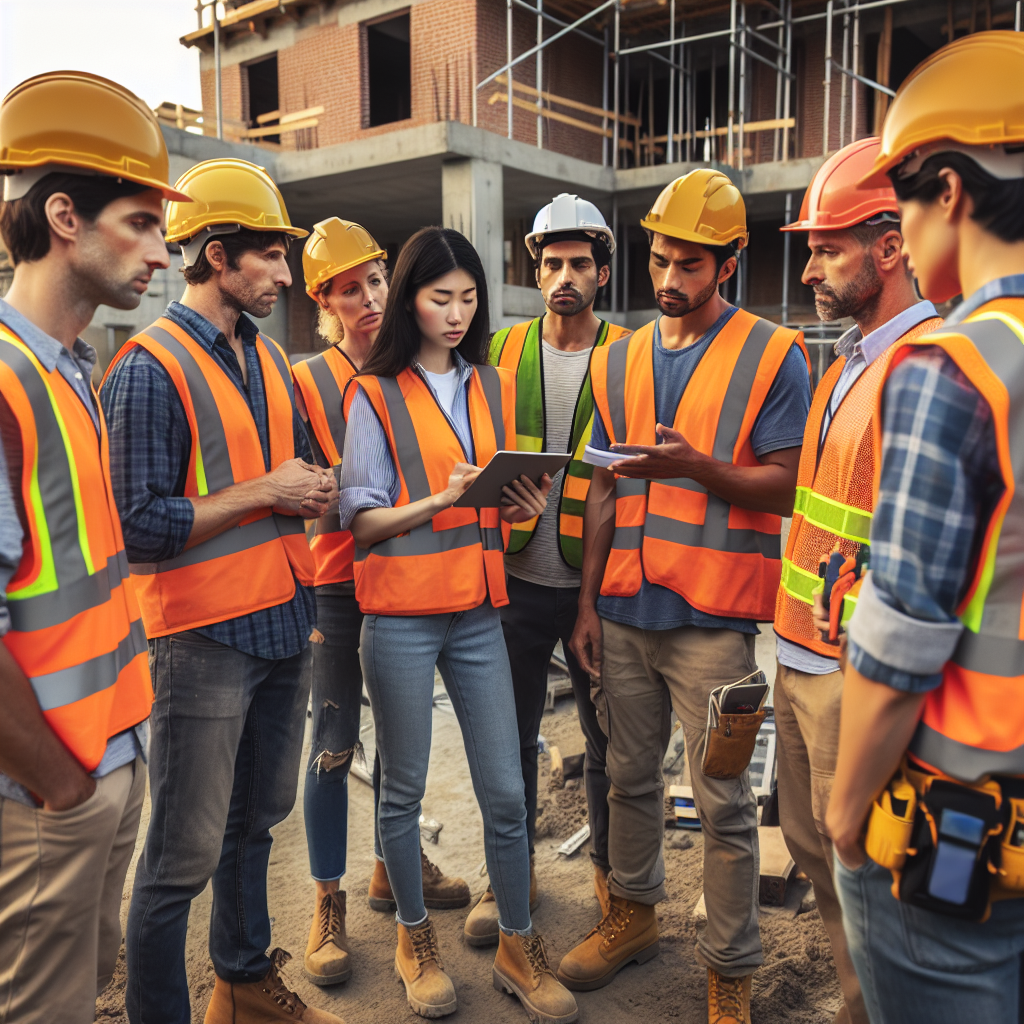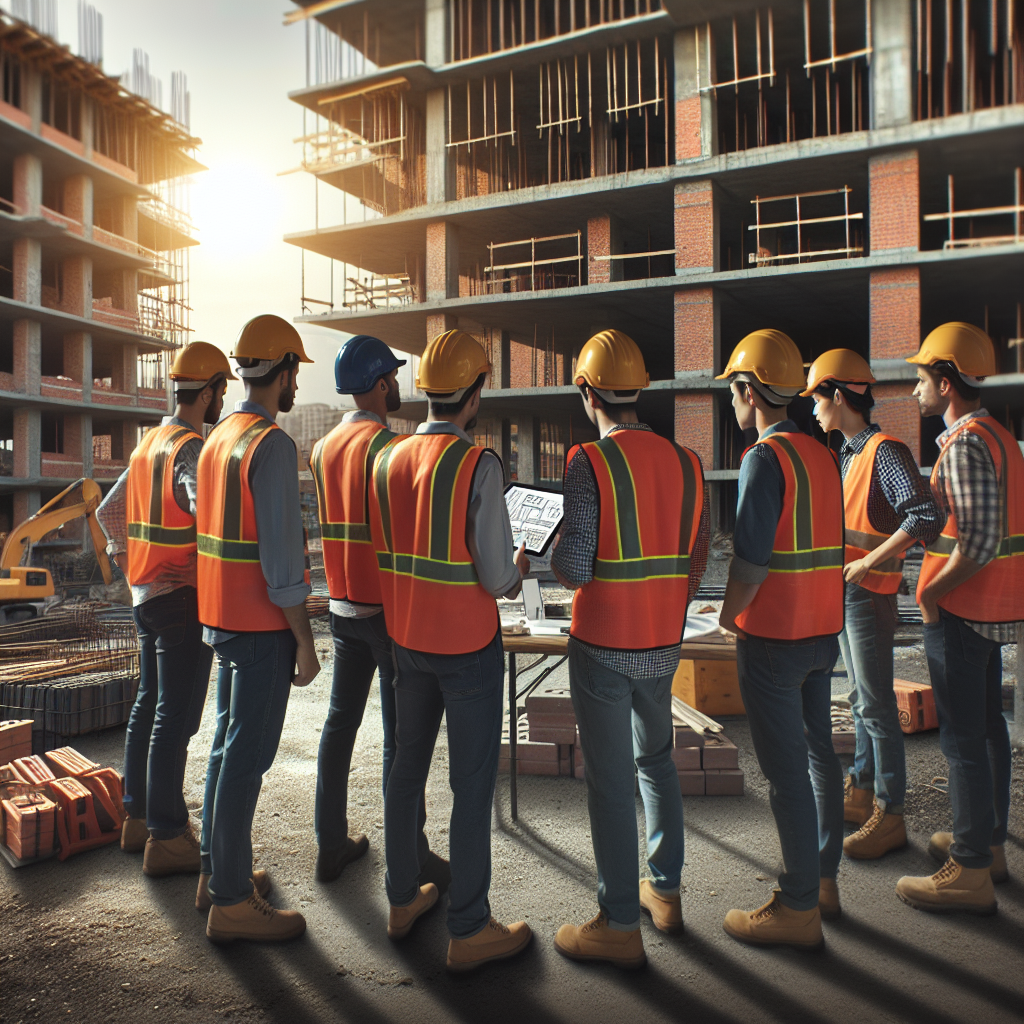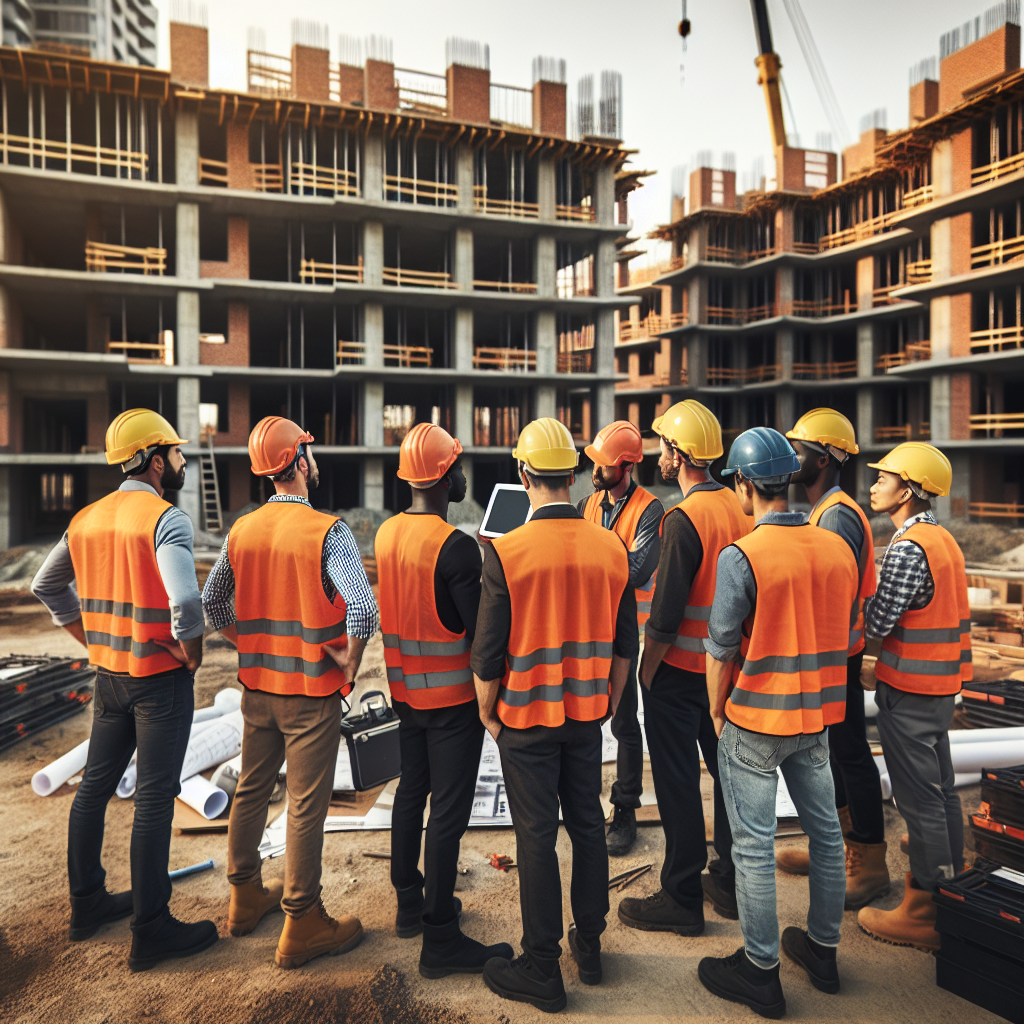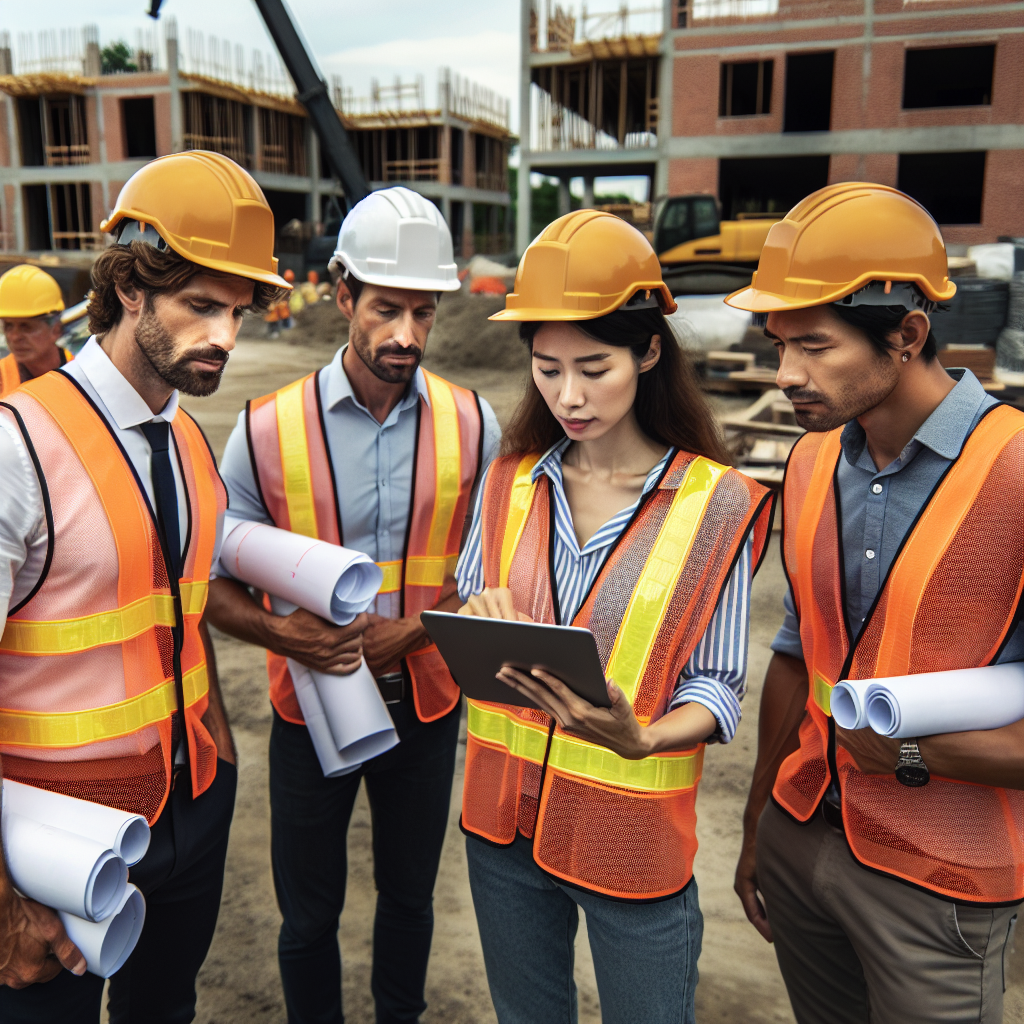How AI Redefines Risk: From Reactive to Predictive Strategies in Construction
The construction industry, known for its complexity and high-risk profile, is undergoing a significant transformation with the integration of Artificial Intelligence (AI). AI is revolutionizing risk management by shifting from reactive to predictive strategies, enhancing project outcomes, improving safety, and optimizing resources.
Predictive Risk Analysis
AI leverages predictive analytics and machine learning algorithms to analyze vast datasets, including historical project data, current site conditions, weather patterns, and worker behaviors. This predictive capability helps in forecasting risks such as delays, cost increases, and safety hazards, allowing project managers to implement targeted mitigation strategies.
- Data-Driven Insights: AI can aggregate and interpret vast amounts of data rapidly, identifying patterns and correlations that might go unnoticed by human analysts. This enhances the accuracy and reliability of risk assessments.
- Real-Time Risk Identification: AI algorithms can monitor construction sites in real-time, identifying potential hazards and alerting managers to unsafe conditions before they become critical.
Real-Time Data Monitoring
AI enables real-time monitoring of construction sites, tracking machinery efficiency, workforce activities, and site conditions. This instantaneous data analysis detects anomalies and hazards, allowing teams to swiftly address potential threats to safety and project timelines.
- Continuous Monitoring: AI provides continuous risk monitoring throughout the project lifecycle, offering real-time insights into potential issues and generating customized risk reports for stakeholders.
- Automated Project Scheduling: AI tools can automatically generate and adjust project schedules based on real-time data, reducing manual effort and ensuring that projects stay on track.
Enhanced Decision-Making
AI enhances decision-making processes by providing valuable insights and simulating different risk scenarios.
- Proactive Decision Making: By analyzing data and predicting potential risks, AI helps construction teams prioritize and make well-informed decisions, ensuring efficient allocation of resources and precise mitigation strategies.
- Risk Scenario Simulation: AI algorithms can simulate different construction timelines, showing how delays in one area might affect the overall project. This allows managers to adjust schedules and allocate resources more efficiently.
Improved Safety and Compliance
AI significantly enhances site safety by continuously monitoring for potential hazards and ensuring compliance with regulatory standards.
- Monitoring Safety Protocols: AI-powered systems can check for proper PPE usage and identify potential collision near misses, ensuring that safety protocols are followed.
- Real-Time Safety Dashboards: AI can create real-time safety dashboards that monitor and predict site conditions, guiding project planning and execution to integrate safety from the ground up.
Integration with Other Technologies
The effectiveness of AI in risk management is further enhanced when integrated with other technologies.
- Integration with BIM: Integrating AI technologies with Building Information Modeling (BIM) enhances resource allocation and project planning. By merging cost data with 3D models, teams achieve greater precision in cost estimations and improved collaboration.
- IoT and Robotics: Combining AI with IoT and robotics can enhance the effectiveness of risk management and overall project efficiency by providing real-time data from various sources.
Use Cases and Best Practices
Customized Risk Assessment and Mitigation
- Tailored Risk Strategies: AI offers customized risk assessment solutions, analyzing historical data and current trends to develop precise mitigation plans essential for project success. This approach ensures that each project’s unique risks are addressed effectively.
Collaborative Insights and Real-Time Visibility
- Centralized Platforms: AI solutions provide a centralized platform for real-time data sharing, enhancing collaboration among project team members and ensuring that everyone has access to the same information.
Continuous Training and Updates
- Staying Updated with AI Trends: Keeping an eye on future trends in AI can give construction companies a competitive edge. This includes advancements in AI algorithms and the integration of AI with other technologies.
How Zepth Can Help
Zepth’s comprehensive construction management solutions are designed to support the transformation to AI-powered risk management. Our tools offer a robust framework for managing risks effectively and efficiently.
- AI-Powered Risk Management Tools: Zepth employs AI to offer tailored risk assessment solutions, analyzing historical data and current trends to develop precise mitigation plans.
- Construction Progress Report Tool: Zepth’s tool enhances visibility into project status and risk management, providing continuous risk monitoring and customized risk reports for stakeholders.
- Integration with Existing Systems: Zepth’s solutions align with business objectives and integrate with other emerging technologies like IoT and robotics to enhance the effectiveness of risk management and overall project efficiency.
Conclusion
Embracing AI-powered risk management strategies is crucial for construction companies looking to enhance project outcomes, improve safety, and optimize resources. By leveraging predictive analytics, real-time monitoring, and proactive issue resolution, AI transforms risk management from a reactive to a predictive approach, ensuring smoother project execution and better decision-making. Zepth’s solutions are at the forefront of this transformation, providing the tools and expertise needed to navigate the complexities of modern construction projects effectively.
